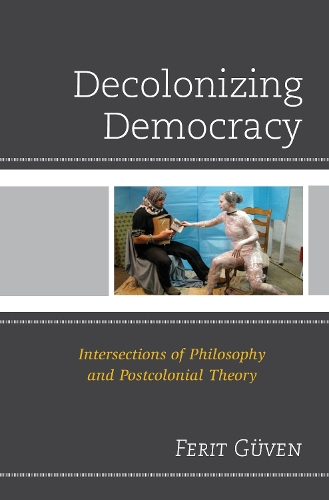
Decolonizing Democracy: Intersections of Philosophy and Postcolonial Theory
(Paperback)
Available Formats
Publishing Details
Decolonizing Democracy: Intersections of Philosophy and Postcolonial Theory
By (Author) Ferit Gven
Bloomsbury Publishing PLC
Lexington Books
23rd May 2019
United States
Classifications
Professional and Scholarly
Non Fiction
Philosophy
Political science and theory
Peace studies and conflict resolution
Politics and government
321.8
Physical Properties
Paperback
144
Width 154mm, Height 222mm, Spine 11mm
227g
Description
Decolonizing Democracy: Intersections of Philosophy and Postcolonial Theory analyzes the concept and the discourse of democracy. Ferit Gven demonstrates how democracy is deployed as a neo-colonial tool to discipline and further subjugate formerly colonized peoples and spaces. The book explains why increasing democratization of the political space in the last three decades produced an increasing dissatisfaction and alienation from the process of governance, rather than a contentment as one might have expected from "the rule of the people. Decolonizing Democracy aims to provide a conceptual response to the crisis of democracy in contemporary world. With both a unique scope and argument, this book will appeal to both philosophy and political science scholars, as well as those involved in postcolonial studies, cultural studies, and peace studies.
Reviews
Discussions of democracy and postcolonialism do not easily come together; this book manages to do so in a uniquely successful way. The extent to which Hegelian ideas still determine our concept of democracy is astounding and brought out here very clearly. For me, the highlight of the book is the final chapter with its elucidating discussion of Kantian ideas in the regulative sense and the proof that Derrida, against his own intentions, relies on teleology in his concept of democracy. -- Tanja Staehler, Professor of European Philosophy, University of Sussex
Author Bio
Ferit Gven is professor of philosophy at Earlham College.
